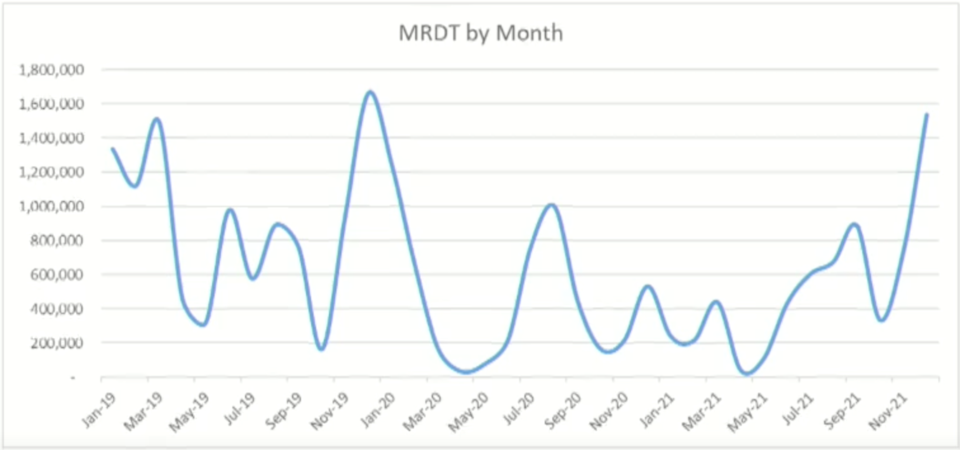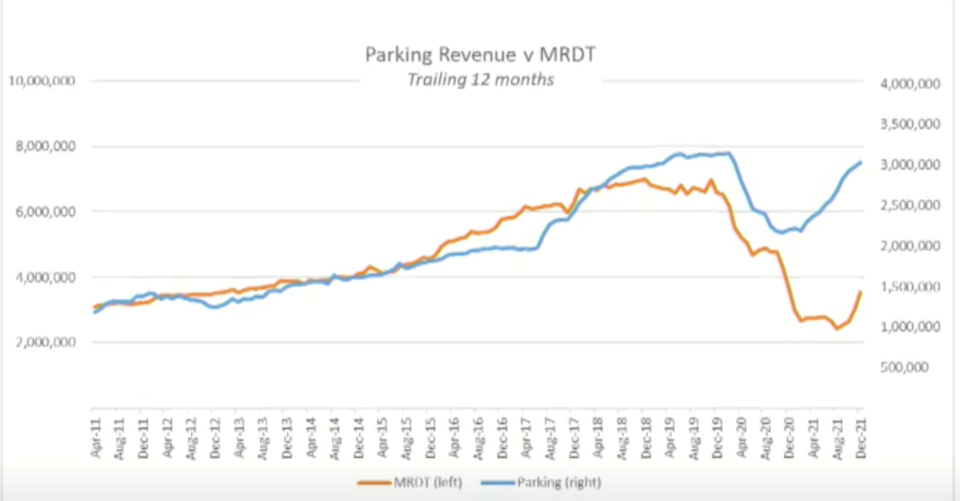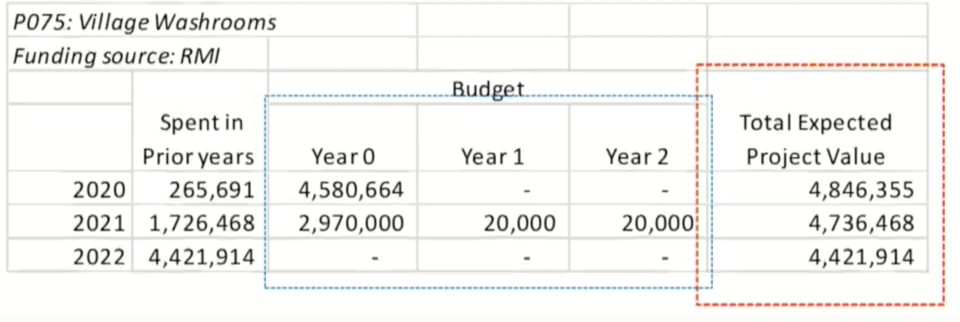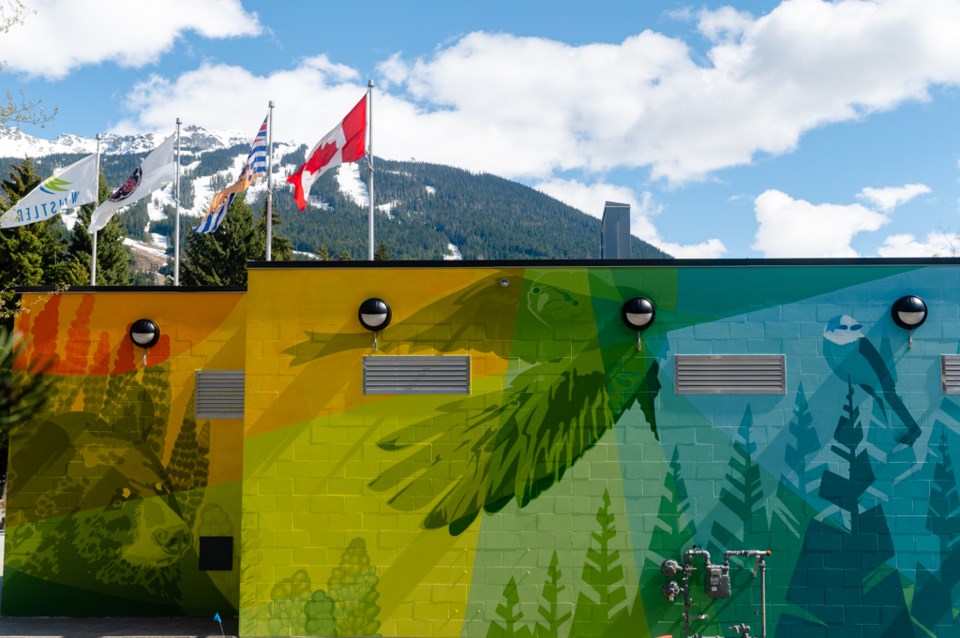Despite facing a series of challenges in 2021—including numerous COVID-19 outbreaks and rapidly changing public health orders—Whistler’s economy seemingly recovered better than expected last year.
The Resort Municipality of Whistler’s (RMOW) overall operating revenues reached 103 per cent of budgeted amounts by the end of the fourth quarter (Q4) of 2021, Whistler’s mayor and council learned during a meeting held last Tuesday, March 22.
RMOW revenues totalled $94,363,136 in 2021, compared to nearly $92,648,582 in 2020 and $100,419,365 in 2019.
Operating expenditures, meanwhile, reached $69,371,113 in 2021, hitting about 100 per cent of their annual budgeted amounts, explained RMOW director of finance Carlee Price in a report to council. Comparatively, expenditures reached 92 per cent of budgeted amounts at the same point in 2020. The composition of the RMOW’s 2021 expenditures was, however, notably different than pre-pandemic years with more funds allocated to initiatives like keeping the community informed of changing health orders, for example.
In 2021, “Many things affected the financial performance of the RMOW—some were good, some were bad ... [but] it’s not just about financial performance,” Price told council. “The RMOW and the community of Whistler rose to the challenge of the pandemic and rose to the challenge of the cyber security incident with grace.”
According to Price, the RMOW’s 2021 revenue can largely be attributed to a thriving real estate, construction, and renovation market. But outside of the construction industry, she explained, general economic activity in the community continues to recover from the COVID-19 pandemic’s impacts “in fits and starts.”
Price pointed to Municipal and Regional District Tax (MRDT, or hotel tax) and parking revenues as particularly useful economic recovery indicators due to their correlation to visitation levels. Despite a series of peaks and valleys in those revenue streams throughout the year, MRDT was less than one per cent short of budgeted amounts, and increased 19.2 per cent from 2020 levels. Price noted an encouraging upward tick in MRDT revenues as the end of the year approached. “In fact, December 2021 revenues are very near to 2019 revenues,” she said. “Recovery as far as MRDT revenue is well underway.”

Parking revenue also benefited from strong visitation in the fourth quarter, she added. In 2021, annual parking revenues fell in line with the RMOW’s budgeted amounts and were similarly nearing 2019 levels by the end of the year.

Whistler village washrooms completed under budget
Last year was a decent one in terms of municipal projects, Price told council during the update. In 2021, the RMOW spent $32,806,178 on municipal projects, about $9.9 million of which comprised a loan to the Whistler 2020 Development Corp for an employee housing project at Cheakamus that will be paid back. “Excluding the WDC amounts, project spending in 2021 was $24.7 [million] against budgeted expenditures of $47.7 [million], for a full-year project completion rate of 51.7 per cent,” the report read, comparing those figures to an average year-end project completion rate of 63.4 per cent over the past five years.
The RMOW finished work on several major projects in 2021, including connecting 33 Alta Lake Road properties to Whistler’s sanitary sewer and finishing the third of three planned village washroom buildings. The controversial washrooms were covered by Resort Municipality Initiative funds and came in at a total of $4,421,914, which, as Price pointed out, is approximately 10 per cent below the $4,846,355 budgeted for the project in 2020.
The focus now will be continuing to build up the RMOW’s reserves in order to protect those assets and others like them, said Price.
“Both of these types of projects placed demands on our reserve balances,” she explained, in reference to the maintenance of existing assets, like the sewer system, and the addition of new assets, like the washrooms.
“As a community, we are not yet in a place where we can confidently say our assets will be well cared for into the future.”





